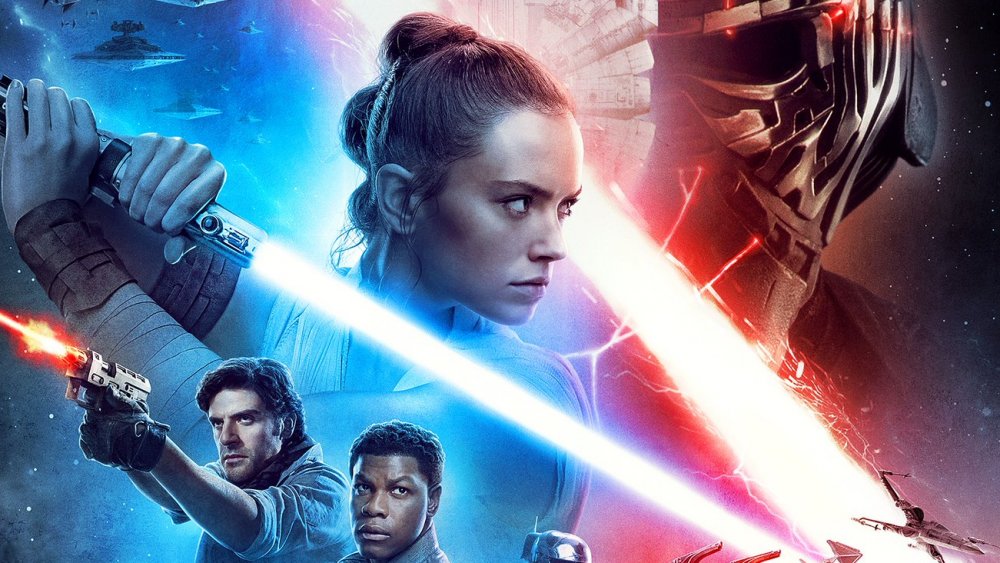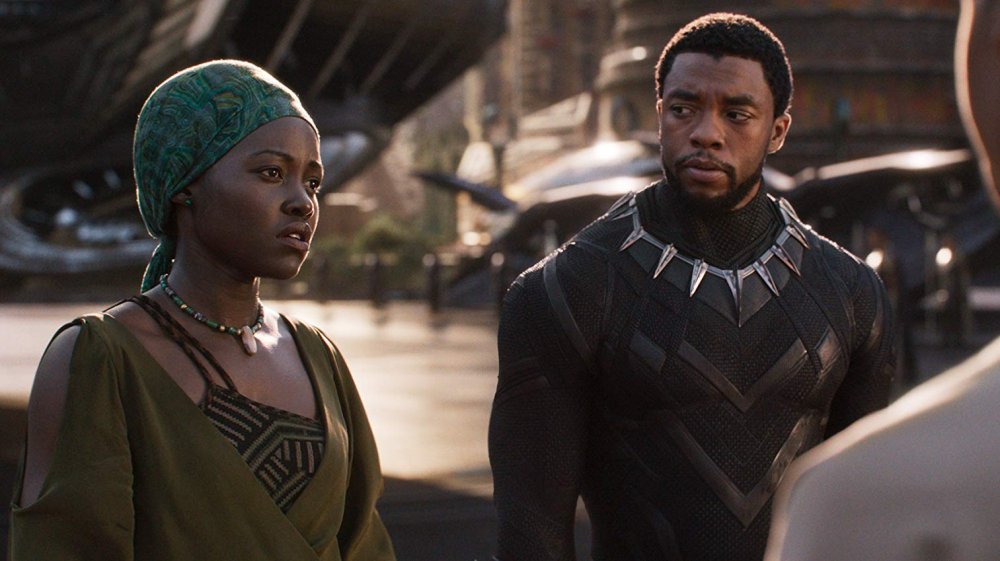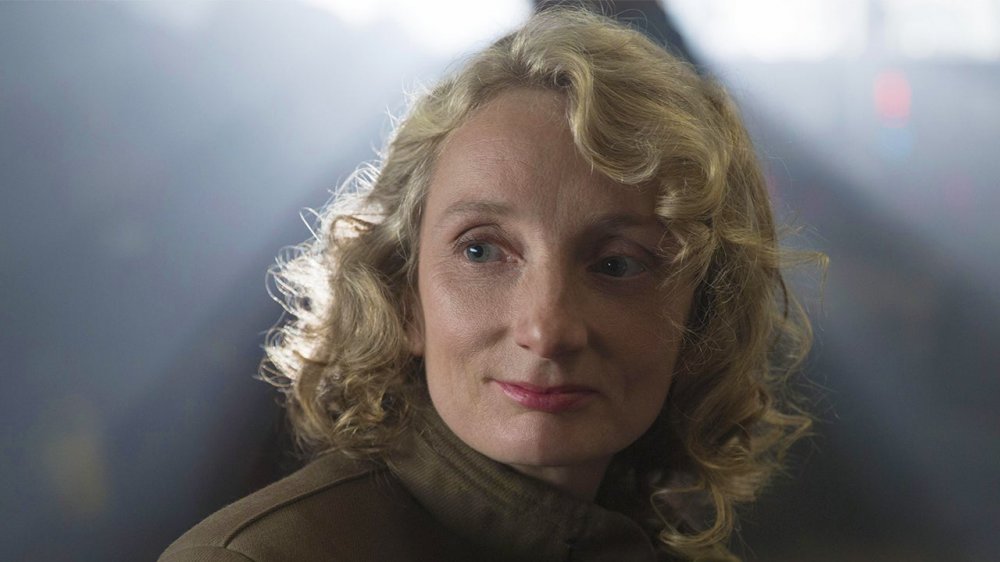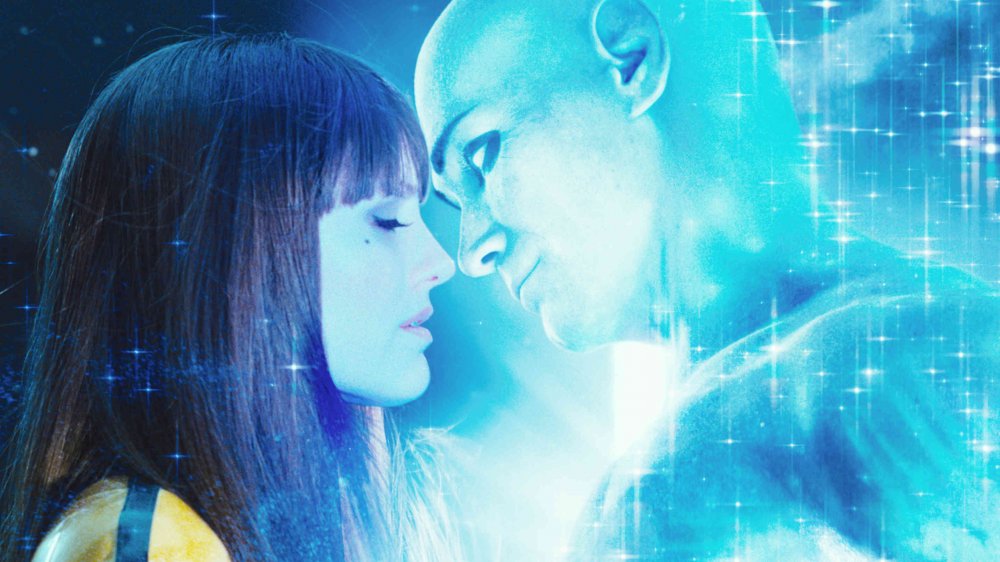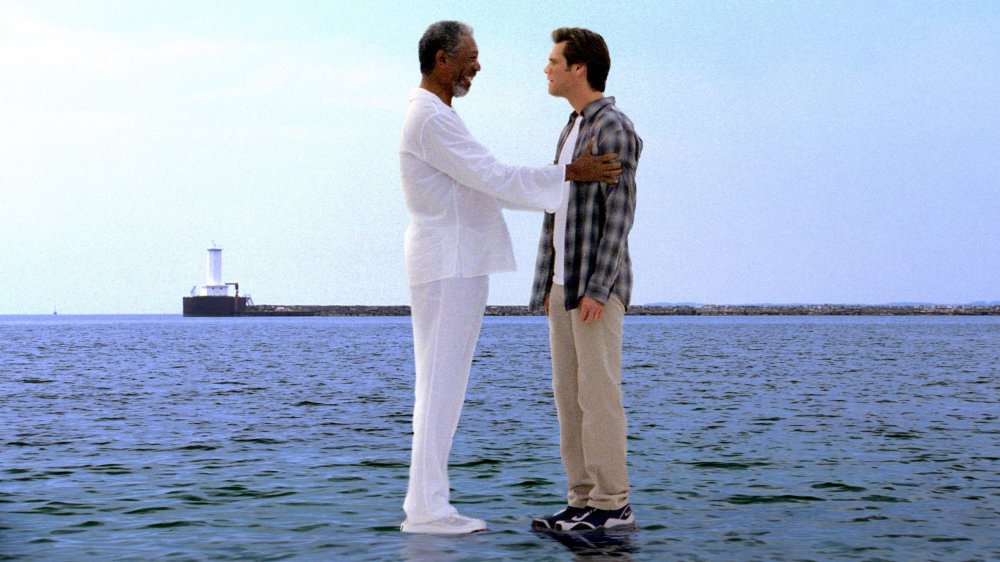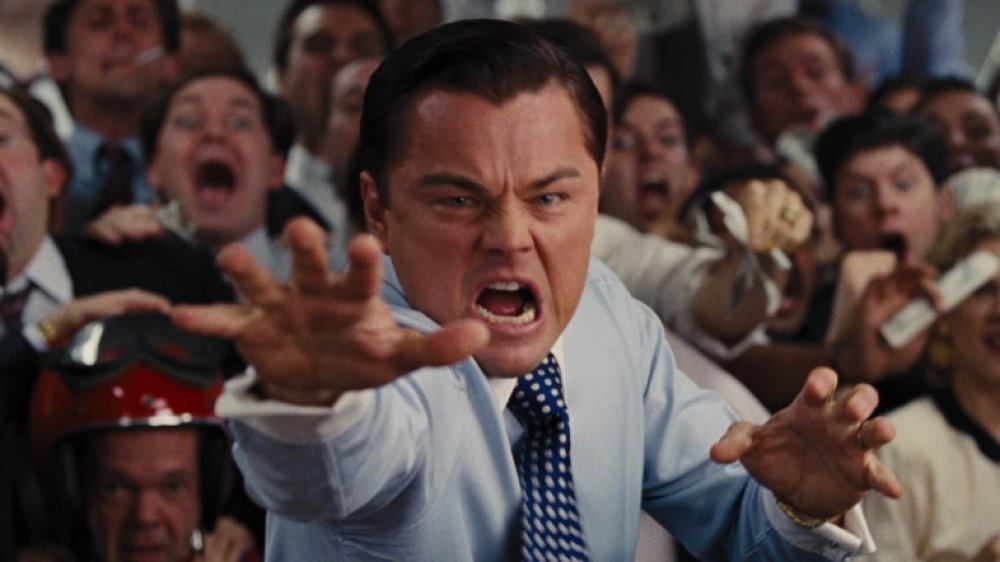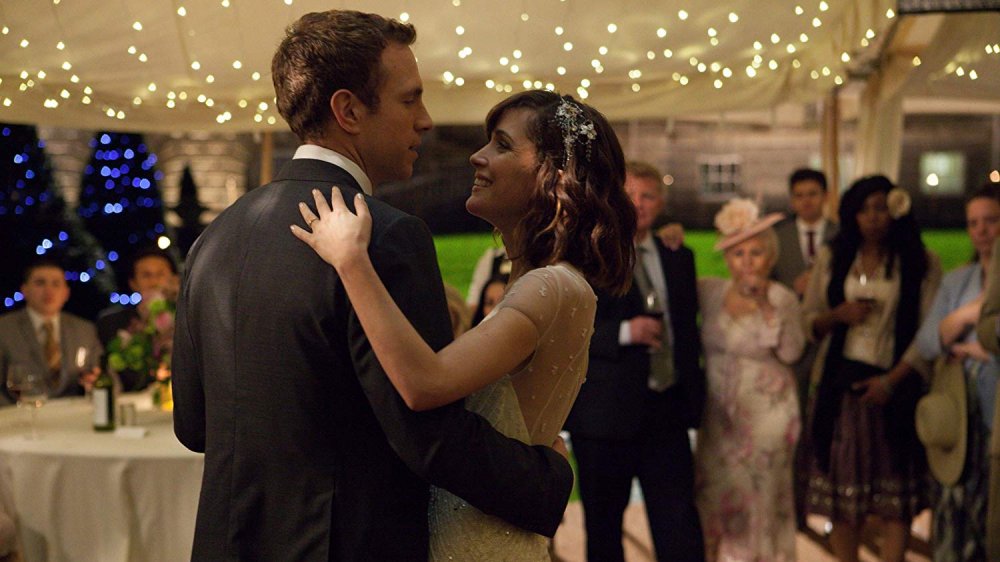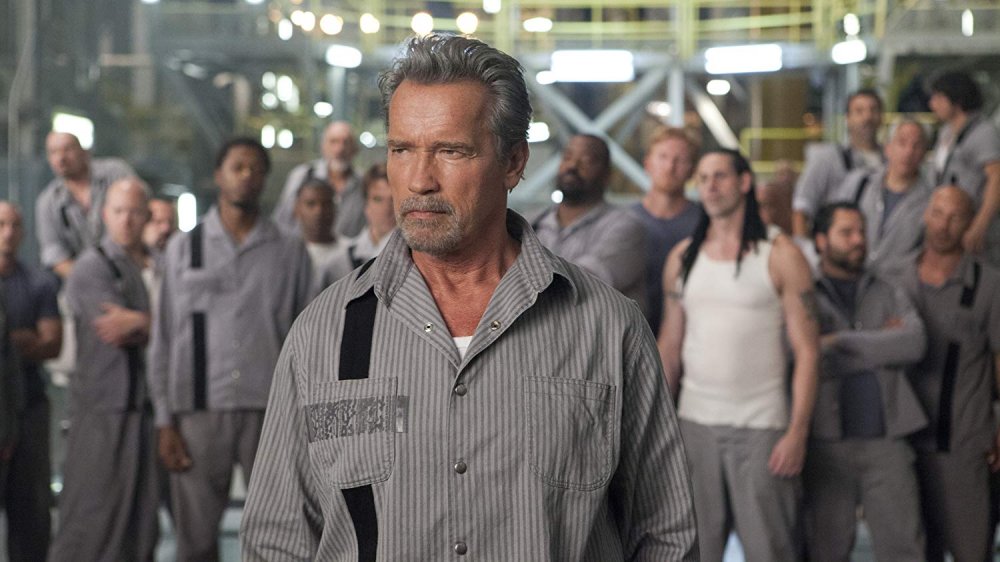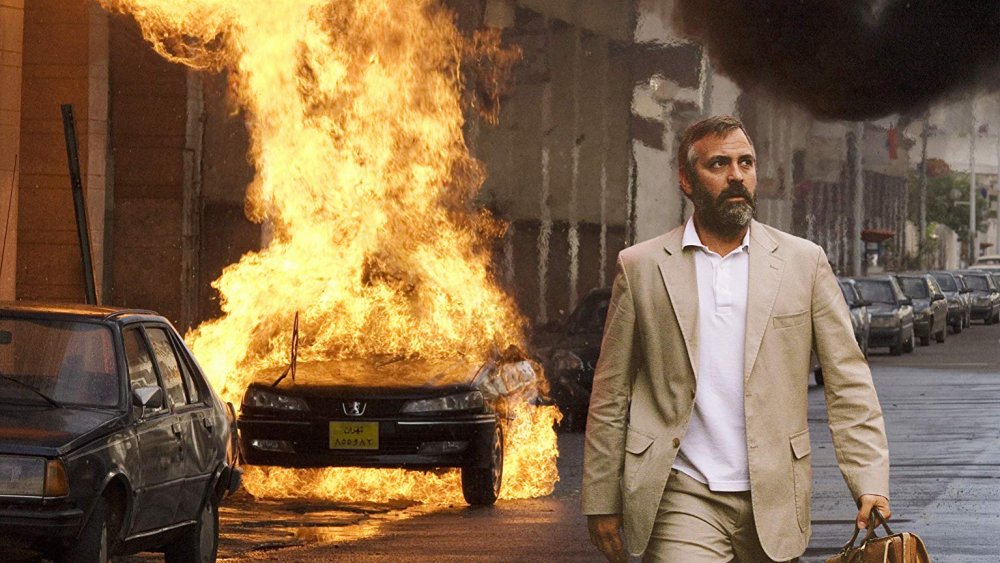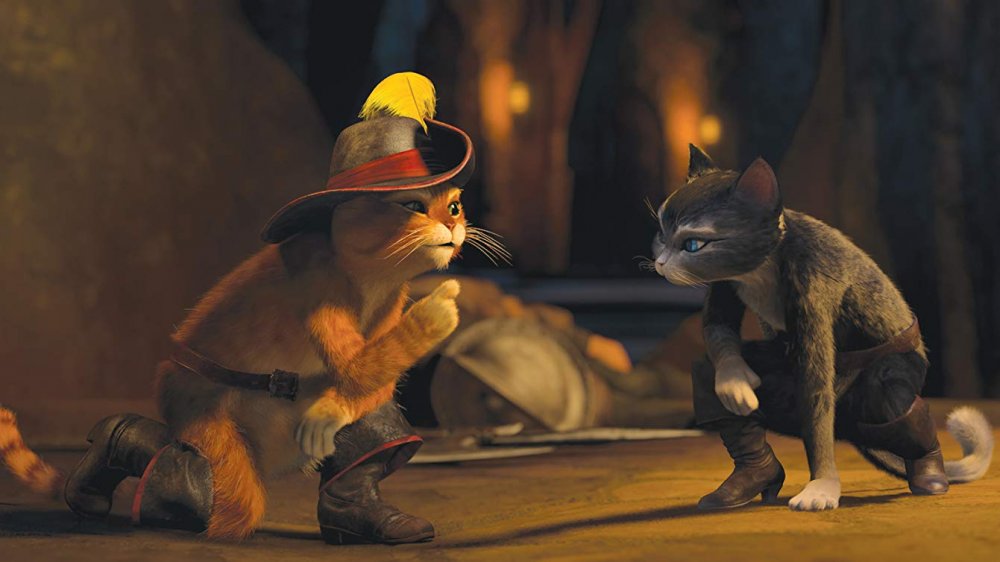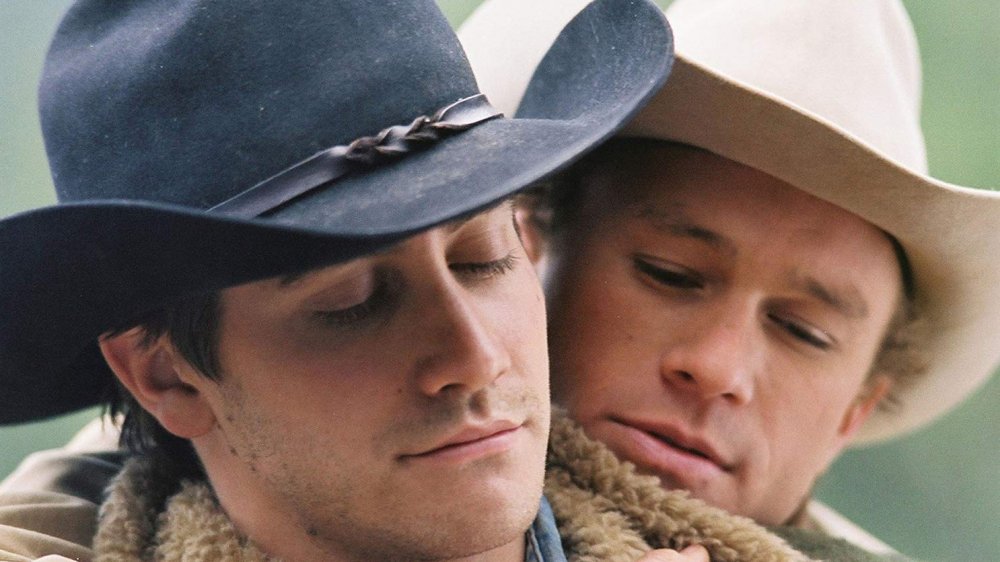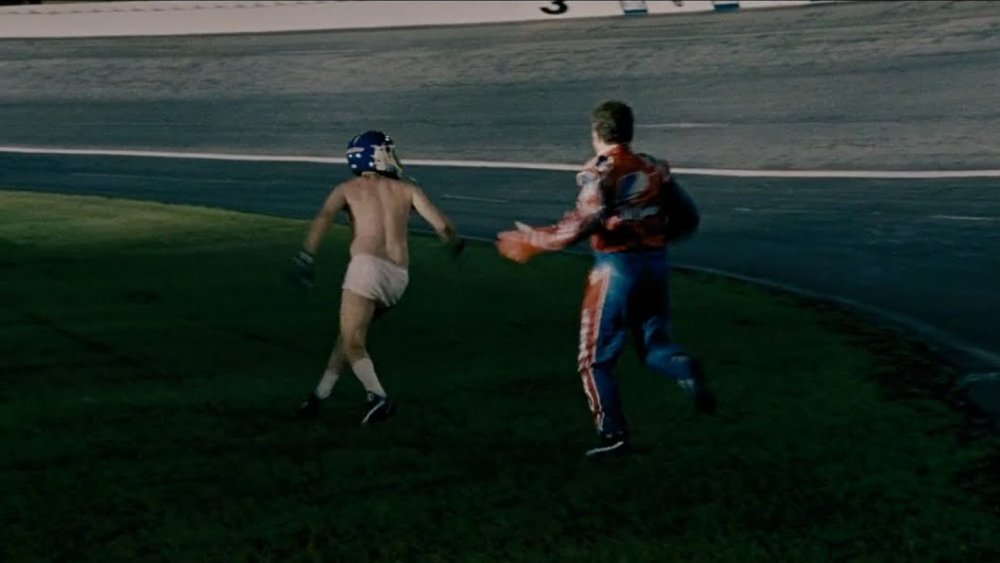Movies Hollywood Was Forced To Change For The Middle East
In the '90s, American moviegoers reigned supreme, with the domestic box office typically accounting for more than half of a film's earnings; however, in 2014, Deadline noted that the trend had been flipped upside down, with roughly 60 percent of a movie's haul coming from overseas. Today's box office data only reaffirms that the international box office has become the new focal point for movie studios, making up 73 percent of total grosses in 2019.
One of the international markets making a jump over the past few years is the Middle East and North Africa (MENA) region. With plans to massively increase regional cinema screens, Grazia reports that the UAE and Saudi Arabia will be two of the world's leading markets by 2030, and forecasts that the MENA region as a whole could account for roughly 5 percent of global box office revenue within the next five years.
How is Hollywood affected by this new need to appeal to foreign audiences? One of the most noticeable actions studios are taking is complying with censorship codes of different cultures, particularly prevalent in certain Middle Eastern nations. For decades, films covering racy subject matter have been banned in certain Arabic countries, but that policy seems to be lessening. In fact, Saudi Arabia even ended a 35-year ban of movie theaters in 2018.
While fewer films are being banned in the Middle East, many have to be altered in order to make the theater. Here are some movies that were forced to change for the Middle East.
Black Panther (2018)
Marvel's Black Panther, the 18th movie in the studio's wildly popular cinematic universe, was historic in more ways than one. At the 2019 Oscars, the film's costume designer, Ruth Carter, became the first African-American woman to win the award for Best Costume Design; likewise for Hannah Beachler, Panther's production designer, who was not only the first woman of color to win Best Production Design, but also the first to even be nominated.
With so many groundbreaking firsts under its belt, it feels appropriate that when Saudi Arabia ended its 35-year ban on cinemas, it did so with a screening of Ryan Coogler's epic superhero adventure. While this was undoubtedly a monumental step in the country's changing culture, it wasn't taken without some precautionary measures. When speaking to the Associated Press, Awwad Alawwad, Saudi's Minister of Culture and Information, stressed the importance of maintaining their traditional values. "We want to ensure the movies are in line with our culture and respect for values. Meanwhile, we want to provide people with a beautiful show and really enjoy watching their own movies."
Although the film's violent fight sequences were untouched, local censors cut out roughly 40 seconds of the screening, including the final kiss shared by Chadwick Boseman's T'Challa and Lupita Nyong'o's Nakia. This cut is somewhat unsurprising considering that Sharia law views public displays of affection as socially unacceptable.
Star Wars: The Rise of Skywalker (2019)
It's fair to say that Star Wars: The Rise of Skywalker had its fair share of issues. A film that was intended to satisfyingly bookend one of the most iconic series in pop culture history, Rise instead brought about more questions than answers, at times seemingly going out of its way to reverse the events of its predecessor, The Last Jedi. The film also had a great deal of scenes that felt forced, random and unearned.
One of those particularly forced scenes involved Amanda Lawrence's Commander D'Acy. In the Resistance's post-battle victory celebration, D'Acy, who up until this point had given no indication of her sexual preference, shares a quick kiss in the background with a fellow female Resistance fighter. While the scene marked the first hint of LBGTQ representation in the Star Wars franchise, it was hardly the "historic" moment that director J.J. Abrams had hyped it up to be. In fact, it felt pretty underwhelming.
Still, the blink-and-you'll-miss-it smooch sparked quite the controversy overseas. Homosexuality is actually illegal in several countries, including the nations of Saudi Arabia, Iran, and Afghanistan. Thus, it is unsurprising that the scene was cut out in Middle Eastern theaters.
Watchmen (2009)
When it was announced that Warner Bros. was making an R-rated film out of Alan Moore's 1986 classic comics series Watchmen, fans anticipated some of the source material's dark, violent moments to be included on the big screen. While characters like Rorschach, Ozymandias, and the Comedian tend to be at the forefront of the series' brutality, many more facets of Moore's grim universe wouldn't be exactly considered "kid-friendly"... or, for that matter, appropriate in certain cultures.
Perhaps the most obvious example would be Doctor Manhattan, the scientist who accidentally gains God-like abilities (as well as fluorescent blue skin) after an atomic experiment goes wrong. While the character himself is actually one of the tamer members of the team, his apparel, or lack there of, is controversial. Manhattan is typically depicted as nude, baring all parts of his blue body for the world to see.
Zack Snyder's cinematic Watchmen stayed true to the source material, featuring an at-times nude Doctor Manhattan. For this reason, several scenes involving the blue superhero were cut out of the movie in Middle Eastern theaters. For those overseas hoping to see Mr. Blue in all his glory, you'd have to wait to buy the DVD — which, interestingly enough, was not censored.
Bruce Almighty (2003)
In the Hadith, a collection of some of Mohammed's sayings and beliefs, Muslims are strictly prohibited from depicting God or the prophets. Thus, the very premise of Jim Carrey's 2003 comedy Bruce Almighty, wherein a man not only meets God, but is also granted his omnipotent powers, is problematic for certain factions of the Islamic religion. Even having a wildly respected Oscar-winning actor like Morgan Freeman playing the "Man Upstairs" is a no-no.
Thus, the UAE version of Bruce Almighty is entirely lacking Freeman's performance, given that it's a depiction of God. While cutting out one of the movie's most significant characters may seem like it would ruin the production as a whole, Mohamad Mutawa, a senior staff member on the National Media Council's censorship department, notes that rules must be followed. "People see things differently. Some see only beauty in certain scenes... I might enjoy a film, but we have to do what the law says." It's kind of crazy to think that this scene could be considered OK, but Morgan Freeman is not.
The Wolf of Wall Street (2013)
In 2013's The Wolf of Wall Street, an adaptation of rags-to-riches-to-prison corrupt stock-swindler Jordan Belfort's memoir, director Martin Scorsese truly swung for the fences, holding very little back. "It has to be seen. It has to be experienced," he argued. "If it raises the ire of some people, that might be a good thing because it makes you think about it." Unfortunately for the audiences of some nations, the product that they saw on the big screen was far from the Oscar-winning director's original vision.
In Dubai, nearly a quarter of the film's three-hour duration was cut, censored for a plethora of reasons including its graphic portrayal of drug usage and copious sex. It was also reported that the UAE version of the film bleeped out all of the film's swearing, which amassed a record-breaking 506 F-words. When all was said and done, roughly 45 minutes of the Oscar-nominated film was straight up missing. With such a massive amount of censorship, it's easy to see why some overseas moviegoers got up and left the theater, claiming the end result was simply incoherent and unwatchable.
I Give It a Year (2013)
Not many Americans saw the 2013 British romcom I Give It a Year. The quirky film, which featured Rose Byrne and Rafe Spall as a newlywed couple struggling to make it through their first year together, pulled in $28,328,531 worldwide, but less than 1 percent of the gross came from U.S. theaters. While essentially all of the movie's take came from overseas, it still fell victim to censorship in some regions, including the Middle East.
In the UAE, 12 minutes were reportedly removed from the movie in order to make it comply with the nation's cultural views. Some of the cuts even made it so that a major plot point was entirely eliminated, leaving audiences confused as to what they were watching. Given that the film had a little full-frontal nudity, it's likely that those were the scenes omitted in theaters, but it's possible that other moments, such as those involving kissing or intimacy, were censored as well. It's hard to make a romantic comedy without a little PDA!
Escape Plan (2013)
In 2013's Escape Plan, Sylvester Stallone and Arnold Schwarzenegger must work together to escape the world's most secure prison. Although the action thriller garnered a pretty "meh" response from audiences and critics, the film still made enough money worldwide to warrant a sequel, Escape Plan 2: Hades, which hit theaters in 2018. However, without the massive bump from the international gross, the original would've absolutely tanked.
Despite the fact that it performed well financially overseas, Escape Plan still was affected by the scrutiny of certain countries' censorship codes. In Dubai, for example, theater screens went black after a character used Arabic curse words. However, it wasn't out of commission for long. Censorship authorities worked exceptionally quickly, cutting out the curse words and re-releasing the revised film to theaters within hours. It's interesting to consider that the film's violent fighting scenes were deemed appropriate in the Middle East, but Arabic swear words were not.
Syriana (2005)
The 2005 dramatic thriller Syriana marked a big step for George Clooney's career. The political film, which is loosely based on the life of ex-CIA Agent Robert Baer, starred Clooney in the role of Robert Barnes, a CIA operative who finds himself in the middle of the dangerously corrupt oil industry. Clooney truly gave his all for this role, which included packing on 40 pounds and even enduring an extremely painful spinal injury while shooting a stunt; however, it fortunately wasn't all for nothing, as the part earned him his first Oscar win.
Unfortunately for certain overseas audiences, the movie that featured Clooney's award-winning performance was a little chopped and screwed in theaters. In the UAE, for example, a number of scenes were cut out. According to Independent, most of the scenes that were censored involved brutal labor abuse and merciless beatings. The original film also included a few references to Saudi's King Fahd and Osama bin Laden, which were perhaps unsurprisingly cut out of the UAE's version of the film as well.
Puss in Boots (2011)
Lebanon isn't exactly a stranger to banning various books, music, or movies. According to NBC, the Middle Eastern nation has banned a slew of wildly popular worldwide phenomena over the years. They banned the music of Lady Gaga, claiming it is offensive to Christianity, as well as Frank Sinatra, citing that his songs promote Zionist tendencies. For fans of literature and history, don't expect to find titles like The Da Vinci Code or The Diary of Anne Frank on the local bookstore shelves — they too have been banned in the country. Obviously, films are no exception; the nation has banned pictures ranging from Stanley Kubrick's Clockwork Orange to Adam Sandler's You Don't Mess With the Zohan.
However, not all movies are automatically banned. In some cases, Lebanon simply makes small amendments or changes in order to censor out the part(s) of the film that they find offensive. Take, for example, DreamWorks' animated Shrek spinoff Puss in Boots. In Lebanon, the animated hit wasn't banned, but the name was actually changed to Cat in Boots. Although it doesn't quite have the same ring to it, the title change apparently did little to hinder the film's success internationally, as it hauled in over $400 million overseas.
Brokeback Mountain (2005)
While Lebanon certainly has a long history of banning controversial films, there are still a few movies that were surprisingly allowed in the country's theaters, albeit in censored form. One such picture: Ang Lee's Oscar-winning dramatic romance Brokeback Mountain, which was monumental for homosexual representation in cinema. Jake Gyllenhaal and the late Heath Ledger starred as two cowboys in a forbidden relationship, and the movie included several scenes that depicted same-sex lovemaking.
While Brokeback Mountain was banned in a slew of nations, including China, the UAE, and even in some parts of America, it was actually screened in Lebanese theaters. However, it's unclear how much of the movie that audiences actually saw, since all scenes involving homosexuality were cut out. When addressing the film's bans in certain American states, Ledger simply laughed it off, saying, "I heard, at one point, that West Virginia was going to ban it, but that's a state that was still lynching people until about 20 years ago." The hypocrisy that Ledger brought up applies in many ways to the Middle East as well.
Talladega Nights: The Ballad of Ricky Bobby (2006)
"Help me Jesus! Help me Jewish God! Help me Allah! Help me Tom Cruise!" Who could forget that Will Ferrell scene from Talladega Nights: The Ballad of Ricky Bobby? As Ferrell's race car driver Ricky Bobby hilariously runs around the racetrack convinced that he's on fire, he strips off his clothes until he's wearing nothing but his helmet, socks, shoes, and underpants. However, for audiences in some Middle Eastern theaters, the scene looked a little different.
As it turns out, censors in Iran used a nifty censorship technique to alter the scene without really distracting from the movie. By digitally extending a wall of the racetrack, censors managed to block out Ferrell's shirtless body. Although it may have detracted a bit of the shot's humor, compared to other cases of Iranian censorship, this scene was actually pretty well done. Just how funny is a naked Will Ferrell, anyway?
